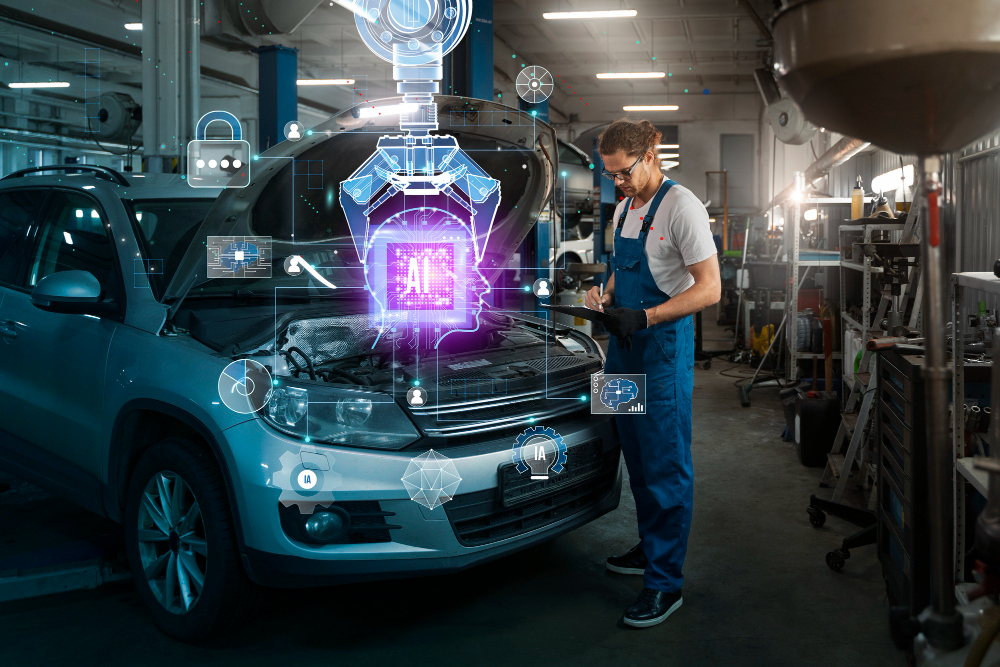The automotive industry is revving up for a transformation like never before. With advancements in technology and a growing focus on sustainability, the future of transportation is set to be faster, smarter, and more eco-friendly. From electric vehicles to autonomous driving systems, let’s dive into the innovative developments shaping the automotive landscape.
Electric Revolution: Powering Tomorrow’s Roads
Electric vehicles (EVs) are no longer just a niche market. They’re rapidly becoming the norm as automakers strive to reduce carbon emissions and meet stricter environmental regulations. Companies like Tesla, Nissan, and Chevrolet have paved the way with their sleek electric models, making zero-emission driving accessible to the masses.
The Rise of EV Charging Infrastructure
As the demand for electric vehicles grows, so does the need for robust charging infrastructure. From public charging stations to home charging units, investments in EV infrastructure are skyrocketing. Companies like ChargePoint and EVgo are leading the charge, ensuring that drivers have convenient access to charging stations wherever they go.
Innovations in Battery Technology
The key to widespread EV adoption lies in battery technology. Breakthroughs in battery chemistry and design are extending range, reducing charging times, and lowering costs. With solid-state batteries on the horizon, the days of range anxiety could soon be a thing of the past, propelling electric vehicles into the mainstream.
Autonomous Driving: Redefining Mobility
The dream of self-driving cars is no longer confined to science fiction. Autonomous driving technology has made significant strides in recent years, promising a future where accidents are rare, and traffic jams are a thing of the past.
AI and Machine Learning in Autonomous Vehicles
At the heart of autonomous driving systems lies artificial intelligence (AI) and machine learning algorithms. These technologies enable vehicles to perceive their surroundings, make real-time decisions, and navigate complex environments with precision. Companies like Waymo and Cruise are leading the charge, testing their self-driving prototypes on roads around the world.
Challenges and Opportunities
While the potential benefits of autonomous driving are vast, significant challenges remain. Safety concerns, regulatory hurdles, and ethical considerations must be addressed before self-driving cars can become a ubiquitous sight on our roads. However, with each passing day, the technology edges closer to reality, offering tantalizing opportunities for a safer, more efficient transportation system.
Sustainability in Focus: Greening the Automotive Supply Chain
As the automotive industry strives to reduce its environmental footprint, sustainability has taken center stage. From manufacturing processes to end-of-life recycling, automakers are reimagining every aspect of the supply chain with an eye towards sustainability.
Green Manufacturing Practices
Automotive manufacturers are increasingly adopting eco-friendly production methods, such as using recycled materials, reducing waste, and optimizing energy usage. Companies like Toyota and BMW are leading the way, setting ambitious sustainability targets and investing in renewable energy sources to power their factories.
Circular Economy Initiatives
The shift towards a circular economy is reshaping how cars are produced and disposed of. Instead of traditional linear models of production and consumption, automakers are embracing circular principles, designing products for longevity and recyclability. By reclaiming materials from end-of-life vehicles, they’re closing the loop and minimizing waste.
Digital Transformation: The Future of Automotive Retail
The way we buy and sell cars is undergoing a digital revolution. From online marketplaces to virtual showrooms, technology is transforming every aspect of the automotive retail experience, offering consumers greater convenience and choice.
E-Commerce Platforms
E-commerce platforms have made it easier than ever to shop for cars online. Whether browsing new models or searching for used bargains, consumers can compare prices, read reviews, and even arrange financing from the comfort of their own homes. Companies like Carvana and Shift are disrupting the traditional dealership model, putting the power of car buying in the hands of the consumer.
Virtual Reality Showrooms
Virtual reality (VR) technology is revolutionizing the car buying experience, allowing customers to explore vehicles in stunning detail without ever setting foot in a physical showroom. From customizing colors and features to taking virtual test drives, VR showrooms offer an immersive and interactive way to shop for cars. As the technology continues to improve, we can expect virtual showrooms to become an integral part of the automotive retail landscape.
Conclusion: Navigating the Road Ahead
The automotive industry is at a crossroads, poised on the brink of a technological revolution. From electric vehicles to autonomous driving systems, sustainability initiatives to digital transformation, the future of transportation is bright with possibilities. As we steer towards a more connected, efficient, and sustainable future, one thing is clear: innovation will be the driving force behind it all.

